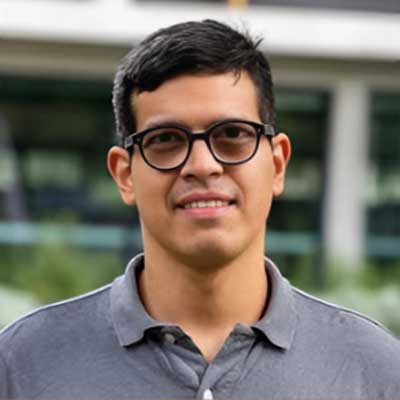Accessibility at the board table: Dr Ronny Andrade Parra

We sat down with Dr Ronny Andrade Parra, disability inclusion advocate and 2023 graduate of The Observership Program, to discuss how simple changes in board practices can transform governance. Drawing from his expertise as RMIT’s Digital Accessibility Lead and his lived experience of disability, Ronny shares practical insights that can help make boardrooms more accessible and effective for everyone.
When Dr Ronny Andrade Parra speaks about board accessibility, he brings a powerful combination of lived experience, academic rigour and practical knowledge to the conversation. As the Digital Accessibility Lead at RMIT University and a 2023 graduate of The Observership Program, Ronny has witnessed firsthand how simple changes to board processes can create more inclusive and effective governance.
“A lot of accessibility solutions are low effort or low cost – it’s just about knowing what steps to take and having the confidence to implement them,” says Ronny, who completed Observerships with two leading organisations in the disability and youth sectors, the Australian Network on Disability and Minus18.
Ronny’s two Observerships built on his early governance experience with the University of Melbourne’s Graduate Student Association council and they provided valuable insights into different approaches to governance. During his observation of both boards, he witnessed how organisational size shapes governance focus, with each board demonstrating distinct but equally effective approaches to fulfilling their missions.
Ronny drew from both his PhD in Human-Computer Interaction and his own experience, as someone with low vision, to help the boards he worked with identify and remove the unintended barriers to participation. One of his notable contributions was advocating for the removal of the term, ‘inspired’, from the marketing materials of one of his host boards. “The word ‘inspired’ can be a little bit loaded in the accessibility community,” Ronny explains, referencing the work of the late disability advocate, Stella Young. “People with disabilities don’t want to be seen as inspiration, just for living normal lives.”
Ronny was born in Ecuador and, after having spent six years as an international student in Australia, he brings unique perspectives to governance roles. His intersectional experience shapes his interactions in the boardroom. “Coming from Ecuador, and with my background in academia, I was initially careful about speaking up,” Ronny reflects. “Both boards were incredibly welcoming, and they saw me as an equal from day one – their inclusive culture helped me find my voice and make meaningful contributions quickly.”
Since completing The Observership Program, Ronny has continued to champion accessibility in governance, through his roles on two key committees. He serves as a member of the Disability Inclusion Advisory Committee for Zoos Victoria and brings his expertise to The Observership Program’s own Accessibility Advisory Committee.
Ronny emphasises practical solutions for boards looking to enhance their accessibility practices. He advocates for providing board papers in Word format rather than PDF, as PDFs can be challenging for screen readers. Early in his Observership, he also made a simple suggestion that benefitted everyone’s wellbeing and concentration, to incorporate five-minute ‘comfort breaks’ during longer meetings. The chair immediately saw the value and implemented the change.
Ronny’s Advice for Inclusive Board Governance:
- Ask about accessibility requirements in advance of meetings and ensure venues are both wheelchair accessible and have suitable seating options
- Provide board papers in Word format rather than PDF, where possible. PDFs can be challenging for people who use screen readers or other assistive technologies
- Include regular five-minute ‘comfort breaks’ during meetings longer than an hour. This benefits everyone’s concentration and wellbeing
- Consider accessibility when selecting board management platforms. Look for solutions that allow documents to be uploaded and downloaded in accessible format.
- When developing marketing or communications materials, be mindful of loaded terms, such as ‘inspired’, which can perpetuate stereotypes about people with disability
Through his work, Ronny demonstrates that inclusive governance isn’t just an aspiration – it’s achievable through thoughtful, practical changes that benefit everyone in the boardroom. “The thing about improving accessibility is that it often comes down to small steps,” he reflects. “It’s just knowing what to do.”
Connect with Ronny on LinkedIn
The Observership Program is committed to supporting people with disability to secure board roles. We offer a range of options, including mentoring, professional development, and assistance in navigating adjustments to help our participants with disability succeed in their board placements.
